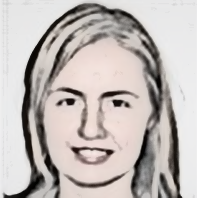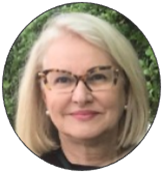CREATE Project Bulletin – September 30, 2019
October 1, 2019
30th September, 2019
WHAT’S BEEN HAPPENING
From the Directors’ Desk – Professors Ross Homel and Greer Johnson (Co-Directors):
In September we attended a number of meetings related to the CREATE Project.
On the 16th of September, the CREATE Executive Committee met. At this meeting we welcomed Karen Hodge from the Department of Education in NSW. Karen is replacing Robyn Bale who is on secondment to The Royal Commission into Violence, Abuse, Neglect and Exploitation of People with Disability. Members of the research team followed up with Karen after the CEC meeting to brief her about the project as a whole and to discuss departmental support for the rollout of Rumble’s Quest.
During the CEC meeting members discussed the project risk assessment analysis that the DSS partners and members of the research team have been working on. The Executive also discussed the planned Health Check of the CREATE Project Coalition. The purpose of the Health Check is to identify where the CREATE Coalition’s strengths are and areas we can strengthen. The intention is that members of the CREATE Coalition will be invited to respond to a survey of 34 Likert style questions derived from the CREATE Coalition Wellbeing Survey. The results from the survey will be reviewed and action planned by attendees at the Plenary meeting planned for the 1st of November. Members will receive an invitation to undertake the survey on the 8th of October and will have until the 18th of October to complete it. The CEC appreciates your time in completing the survey.
At the CEC Ross Homel updated the Executive regarding data collection, especially Rumble’s Quest. Within Queensland a total of 48 State Schools have registered to use Rumble’s Quest, with an additional 12 state schools outside of Communities for Children sites also registered. 22 Catholic schools in Queensland have registered to use Rumble’s Quest, eleven of these within Communities for Children areas. The rollout to Catholic schools in Queensland has been supported and coordinated by the Catholic Schools Education Commission. Within NSW 11 schools have registered to use Rumble’s Quest so far. We have also been in contact with the Catholic education system in NSW and are waiting on a response.
Beyond the Communities for Children sites in Queensland and NSW, 28 public schools within another state have used Rumble’s Quest in 2019. A further 33 schools from the Catholic Education System in that jurisdiction will be using Rumble’s Quest in 2020.
Excitingly some of these education systems are the first to use a beta version of the Rumble’s Quest organisation-level dashboard, which enables them to access a report on the wellbeing of children across their whole jurisdiction. This facility will inform system level planning and review.
With regard to those Queensland and NSW schools who have registered to use Rumble’s Quest as part of the CREATE project — Seven schools hit the ground running and have already used it extensively with their students. A further eight schools have begun using it, and it is anticipated that the majority of schools might begin using it in Term 4. Based on this assumption we plan to commence the process of testing the Community Risk and Protective factor methodology in November. Within some sites we have enough suburbs populated with Rumble’s Quest data to test this methodology but hope by November there will be even more. This process will begin with combining Rumble’s Quest, AEDC and administrative data. Following this the Risk and Protective factor framework Dr Kate Freiberg developed from an extensive literature review will be tested. The eventual outcome will be a suburb (SA2) level report of Risk and Protective Factors within Communities for Children sites where sufficient Rumble’s Quest data has been collected. We anticpate providing these reports in Febrary-March of 2020. In 2020, Term 2, we also hope to produce a report on the wellbeing of younger school-aged children.
At the CEC meeting we also reported on the great progress our ANU colleagues are making with regards to the development of the beta version of an Economic Efficiency Analysis App.
This month we continued to plan the Syposium (30th October), Workshop (31st October), and Project Plenary meeting (1st November), and are looking forward to visits by Dr Deborah Ghate and Dr Brian Bumbarger in October. We recently announced Distinguished Professor Maggie Walter and Associate Professor Geoff Woolcock as speakers at the Symposium and will be announcing Professors Greer Johnson and Bev Flückiger shortly. A final announcement is anticipated for mid-October. This announcement will feature the program.
The Symposium Steering Committee met for the second time in September. They were joined by Distinguished Professor Walter who shared what she will be speaking about. The Steering Committee discussed how to tie the whole day together and is making sure plenty of time is provided at the Symposium for attendees to apply what they are learning to their practice. As most people are registering for both the Symposium and Workshop we are looking at ways in which the two days can complement each other without making it too confusing for those who only attended the Workshop.
There won’t be an October newsletter due to the Symposium, Workshop and Project Plenary meeting at the end of October. But we are planning a bumper November newsletter with outcomes from the Symposium, Workshop and Project Plenary meeting anticipated.
We look forward to seeing many of you at the October events and Plenary,


Contributions Welcome – Contributions from project partners to the RoundUP are welcome. If you have an idea for a feature, event or just something that made you smile please contact Sara Branch (s.branch@griffith.edu.au) for inclusion in future RoundUPs. |
PARTNER FEATURE – CARMEL SEFIAN
DEPARTMENT OF SOCIAL SERVICES
 I have been engaged with the CREATE project since taking up the role of project ‘Partner Investigator’ on behalf of the Department of Social Services (the Department) in late 2018. (Before this time, I confess my knowledge of CREATE was limited to an image of a cute, dog-like creature called ‘Rumble’ who always seemed to be on a very important quest!) Learning more about the aims and ambitions of the project has been a happy addition to my day-to-day work in the capacity building team within the department’s Family Policy Branch. I enjoy the complementarity of both roles, as they both contribute to approaches and initiatives that seek to make a positive and enduring difference in the lives of the Australian families and communities.
I have been engaged with the CREATE project since taking up the role of project ‘Partner Investigator’ on behalf of the Department of Social Services (the Department) in late 2018. (Before this time, I confess my knowledge of CREATE was limited to an image of a cute, dog-like creature called ‘Rumble’ who always seemed to be on a very important quest!) Learning more about the aims and ambitions of the project has been a happy addition to my day-to-day work in the capacity building team within the department’s Family Policy Branch. I enjoy the complementarity of both roles, as they both contribute to approaches and initiatives that seek to make a positive and enduring difference in the lives of the Australian families and communities.
Prior to joining the Department, I worked for six years in the private sector on implementation of international development assistance projects, most notably a rural health improvement project in the Shaanxi province of the People’s Republic of China (home of the famed Terracotta Warriors!). I also worked in Indonesia on a specialised training project which provided community development and public sector agency capacity building across the country. Returning to Australia, I sought to better understand social issues closer to home, and completed a Masters of Public Policy (Social Policy) while working in various corporate, disability and carers and family policy areas of the department.
I enjoy thinking through and addressing some of the policy challenges of supporting stronger families and more resilient communities and value different perspectives on some of the more ‘wicked’ social problems we face in our work. This has led to me re-training as a social worker and learning invaluable lessons directly from service users and their families about their lived experiences and what supports make a real difference (both good and bad) in their lives.
Wearing both hats has reinforced a commitment to inclusive ways of working across both fields. For me, this means supporting often subtle but positive ‘shifts’, both in personal circumstances and policy contexts (some might call me a ‘nudge-ist’). Importantly, this also means supporting genuine recognition of different ways of knowing, thinking and being, and particularly valuing the unique cultural knowledge, experience and skills of Aboriginal and Torres Strait Islander peoples as First Australians.
In the context of getting to know the ins and outs of the CREATE project, I have been struck by the insights CREATE provides in steadfastly trialling new approaches to evidence-informed collaborative action to improve children’s wellbeing. I am particularly interested in learning how these insights can advance the department’s role in applying and improving the skills and knowledge needed to work in more innovative and collaborative ways.
THINGS THAT MADE US SMILE THIS MONTH
Community of Practice – Sara Branch smiled when she caught up with the remaining Collective Impact Facilitators recently. As a result of requests for continued contact and coaching for CIFs a Community of Practice is being developed. This group plans to meet once a month to advance learning and share emergent practice.
New research – We smiled when our colleagues at Deakin University shared their latest published research with us. This paper titled: Community Intervention to Prevent Adolescent Health Behavior Problems: Evaluation of Communities That Care in Australia, outlines the effects of Communities That Care within four Australian communities. You can access the paper at: http://dx.doi.org/10.1037/hea0000735
UPCOMING MEETINGS AND EVENTS
30th October – Community Based Prevention and Implementation: Achievements and Challenges (open to all)
Venue: The Ship Inn Function Centre, South Brisbane, QLD 4101
9.00 am – 5.00 pm
The saying ‘Nothing About Us – Without Us’ reminds us of the importance of working in respectful partnership with consumers of programs and services to transform the wellbeing of children, families and communities. This is especially reflected in the Uluru Statement from the Heart (May 2017) and the more recent ChangeFest 2018 Statement (November 2018). Both of these statements assert the primacy of community co-design and control in the creation, implementation and evaluation of actions that occur within communities. However, coming together to plan and implement appropriate supports for children, families and communities can be a challenge, due not to any lack of good will but rather to numerous barriers embedded in our organisations and communities, and in how we think about ‘what is needed’. A very practical challenge is that organisations, schools, and communities frequently lack the tools they need to understand and respond to local problems.
The collective Impact movement offers guidance on how to bring fragmented services together to achieve common goals. When the goal is to improve the wellbeing of children, early education and schools play a vital role in enabling community-based prevention and support. However, one part of the Collective Impact equation missing is the use of scientific methods and the associated tools and resources to realise the promise of collaboration. Prevention and Implementation Sciences provide some of the missing ingredients that will assist in shifting the dial for communities facing complex community needs.
Insights from Prevention and Implementation Sciences point to how data-driven decision-making and evidence-informed action can occur. They inform, for example, the development of practical methodologies and resources that help build the capacity of the sector. Moreover, knowledge derived from decades of research and practice is helping inform community action based on comprehensive theories of change by means of which the imperatives of implementation fidelity and adaptations to context can be balanced. These insights are contributing to an emerging practice that is based on a continuous learning cycle of reflection, theorising, planning and acting.
At this symposium, leading practitioners and researchers from around the world will share with attendees emerging knowledge about how services can be implemented to achieve measurable improvements in community wellbeing. Opportunities to apply this knowledge to your practice will be provided throughout the day.
| We are pleased to announce that joining Drs Deborah Ghate and Brian Bumbarger as speakers at the Symposium on the 30th of October are Distinguished Professor Maggie Walter, Professors Greer Johnson and Bev Flückiger, and Associate Professor Woolcock: | ||
 |
Professor Greer Johnson has led a number of projects that focus on making life chances better for children from low income families. Since 2014 she has worked with Professor Bev Fluckiger in rural and remote Indigenous communities seeking to establish equitable and sustainable coalitions of families, schools and community members and organisations to support children’s wellbeing and engagement in learning.
Professor Bev Flückiger’s research is focused on leadership in early childhood education and care to ensure that all children have the opportunity to engage in learning, exercise agency, and experience success. Currently, Bev is working with Professor Greer Johnson to promote family, school, and community leadership coalitions to improve the educational outcomes for disadvantaged children. |
 |
 |
Distinguished Professor Maggie Walter (PhD; FASS) is Palawa and a member of the Tasmanian Briggs family and is a sociologist, holding the position of Distinguished Professor at the University of Tasmania. The centre of Maggie’s intellectual passion is Indigenous data and she has published extensively in the field including Indigenous Statistics: A Quantitative Research Methodology (co-authored with C. Andersen 2013 Routledge) and is co-editor (with Karen Martin and Gawaian Bodkin-Andrews, Palgrave McMillan, 2017) of Indigenous Children Growing Up Strong. She holds numerous national and international service positions relating to Indigenous research, policy and evaluation and is a founding member of the Global Indigenous Data Alliance (GIDA). | |
 |
Associate Professor Geoff Woolcock is a Senior Research Fellow at the University of Southern Queensland’s Institute for Resilient Regions, and an Adjunct Associate Professor at Griffith University’s School of Human Services and Social Work and University of Sunshine Coast’s School of Social Sciences. He is an experienced social researcher with considerable expertise in social and community service planning and evaluation, including social impact assessment and project evaluation, social capital and community capacity building. Geoff has 30 years community-based research experience nationally and internationally and has co-published more than 150 peer-reviewed papers, book chapters and community reports. As a Member of the Australian Institute of Company Directors (MAICD), he is a board director of the Brisbane Housing Company, the Australian National Development Index (ANDI) and Logan Child-Friendly Community Ltd overseeing the high-profile collective impact initiative, Logan Together.
|
|
——————
31st October – Implementation Science and Practice: Introduction to Key Concepts (open to all)
Venue: The Ship Inn Function Centre, South Brisbane, QLD 4101
9.00 am – 4.00 pm
Considered by some as the necessary link between science and practice, the field of Implementation Sciences addresses the factors that influence the delivery of quality services.
Implementation Sciences reminds us that the development of evidence-based practices (as informed by Prevention Science) is not enough to ensure good outcomes. Indeed implementation matters! However, for a number of reasons many evidence-based programs are not implemented well. Understanding implementation, is therefore vital to the development, successful use and upscaling of evidence-based programs.
Concepts such as, theory of change or program logic, fidelity, adaptation and measuring implementation are all important to Implementation Sciences. This one-day workshop will explore these, and other core concepts related to Implementation Sciences. Opportunity to apply these concepts to your practice and how it relates to systems change will be provided throughout the day.
| Drs Deborah Ghate and Brian Bumbarger along with members of the CREATE research team will co-facilitate the Workshop on the 31st of October: | |
 |
Dr. Brian K. Bumbarger. Brian is an Adjunct Research Fellow at the Griffith University Institute of Criminology (Queensland) as well as Visiting Research Associate with the Prevention Research Center in the Department of Human Development and Family Studies at Colorado State University. For over two decades he has conducted research and advised policymakers on dissemination, implementation, and sustainment of evidence-based programs and practices to strengthen families and communities. From 2008-2016 Dr. Bumbarger served as Founding Director and Principal Investigator of the Evidence-based Prevention and Intervention Support Center (EPISCenter), a state-level intermediary supporting communities and government systems in the largest-ever dissemination of evidence-based programs and community collective impact coalitions, with over 300 sites. The EPISCenter has been cited internationally as an exemplar for bridging research, policy and practice to improve child and family outcomes and government services. Brian is currently working to replicate learnings from that endeavour throughout the United States and across the world. |
 |
Deborah Ghate, D. Phil, FAcSS. Deborah is a researcher, analyst, consultant and organisational leader specialising in implementation science and practice for child and family services. She is Chief Executive of the independent non-profit Colebrooke Centre for Evidence and Implementation (www.cevi.org.uk) which works in the UK and internationally on research and consultancy in applied implementation science. Before that she set up and ran the Centre for Effective Services in Ireland (an implementation support centre funded by government and philanthropy) and founded and directed a leading independent policy research centre in London. She is Chair of the UK Implementation Society (UK-IS; www. ukimplementation.org.uk) and was elected a Fellow of the UK Academy of Social Sciences in 2016. Deborah is currently writing about and working on multiple themes in the application of implementation and improvement science in practice and policy, including systems leadership, co-creation, scaling and using theories of change for quality improvement. |
To find out more or to register: http://events.griffith.edu.au/d/p6q4rv
——————
1st November – Project Plenary Meeting (invited project partners only) – South Bank Campus, Brisbane
Category: Latest news, Project Newsletter
Posted by Creating Pathways Support
